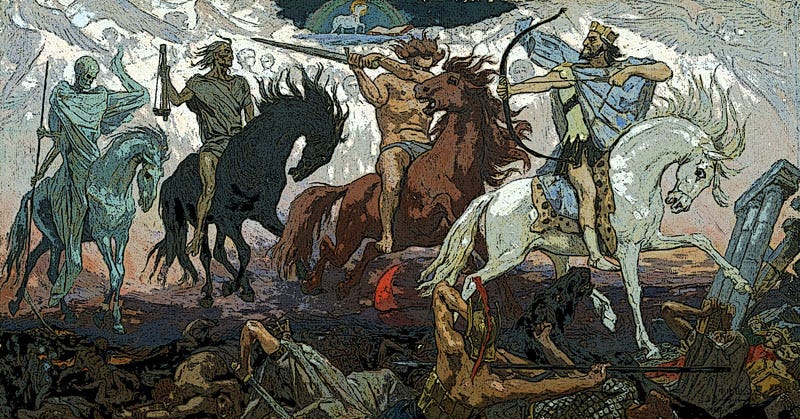The Fulcrum of Courage, Part 13

When Good Friday coincided with the Feast of Annunciation in 992, millenialist clerics were certain the Apocalypse was about to commence.
When it didn’t, they recalculated the date and modified their expectations.
In 995, the two events coincided again, and the clerics r…
Keep reading with a 7-day free trial
Subscribe to The Fulcrum of Courage to keep reading this post and get 7 days of free access to the full post archives.

